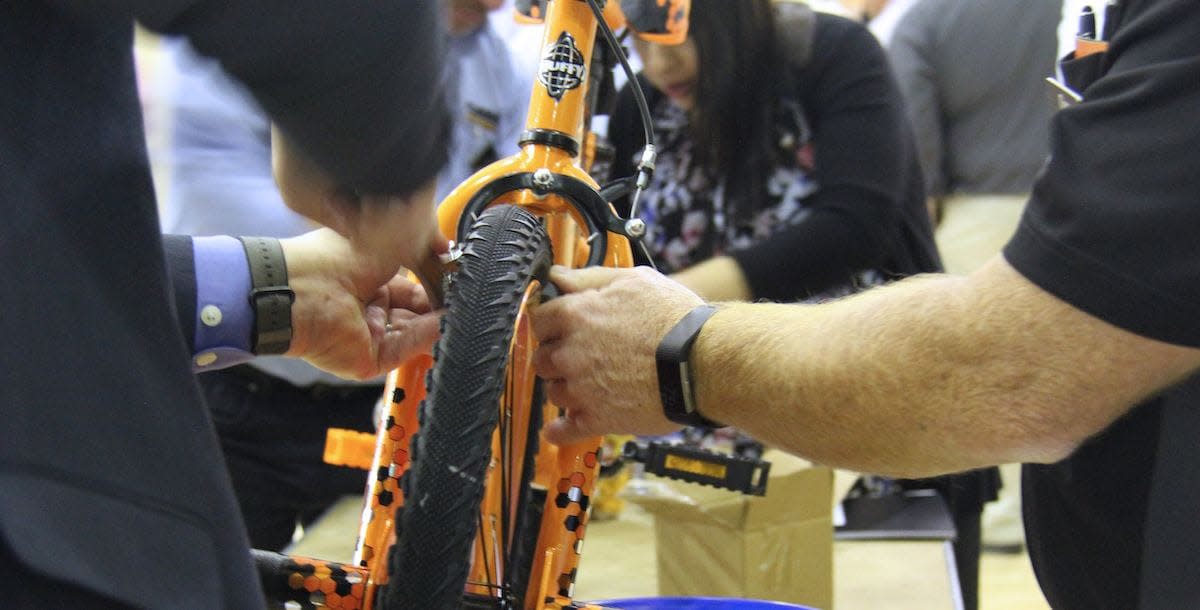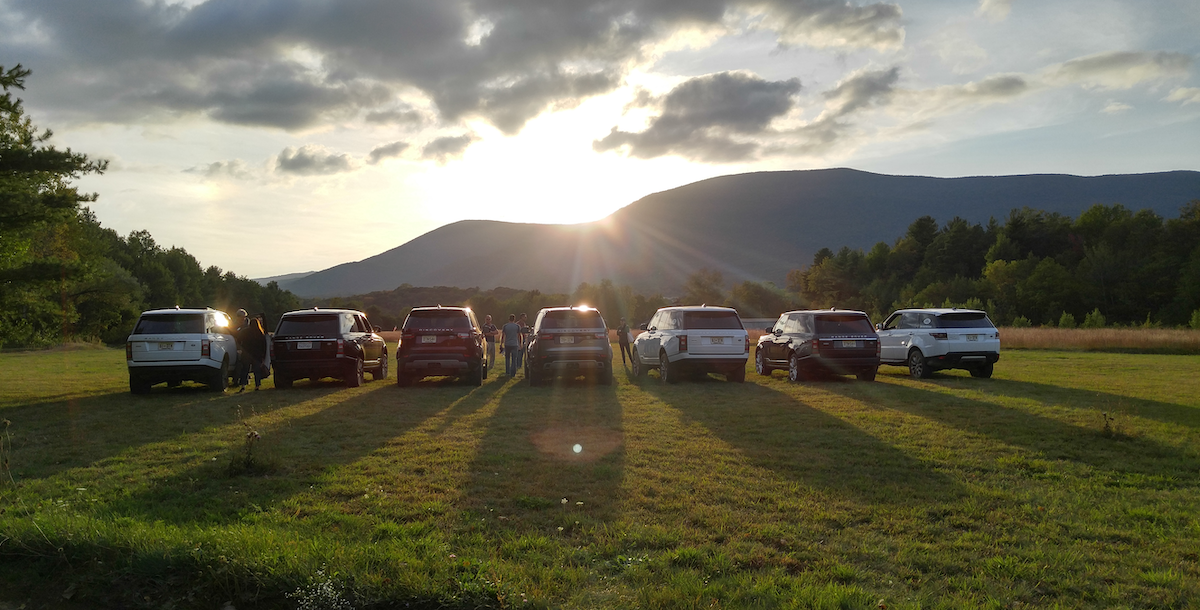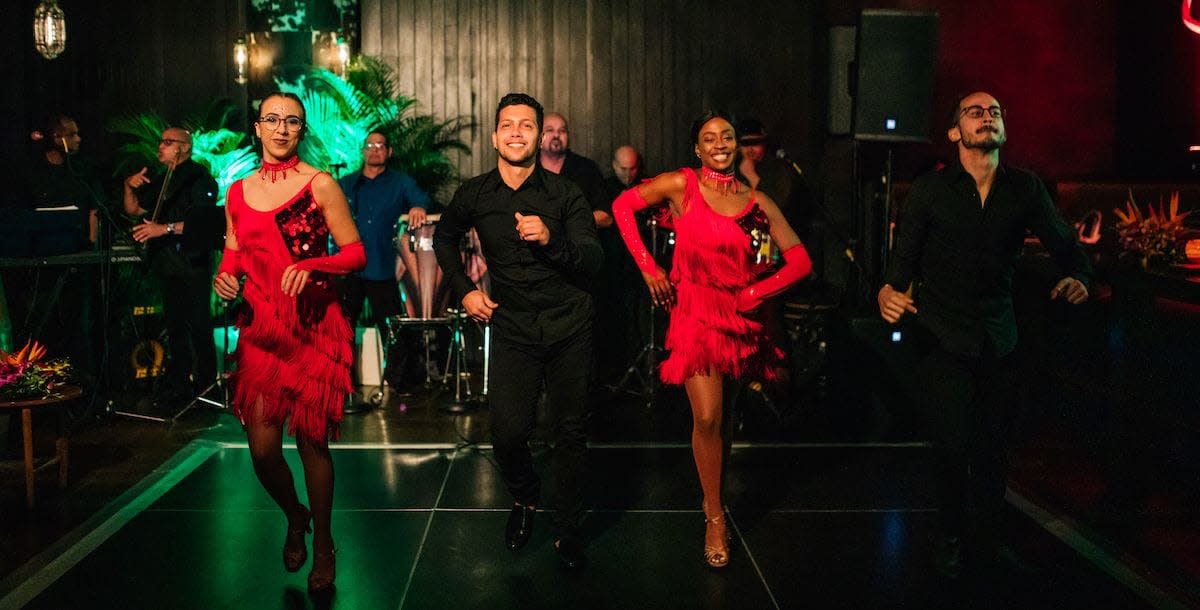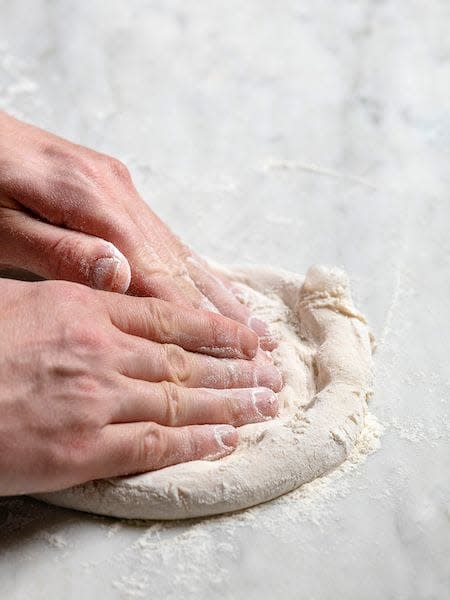During the past few months, Minneapolis-based clinical psychologist Sherry Walling has done something that was off limits during the pandemic: Attend in-person, professional meetings. She’s been pleasantly surprised by how excited her fellow attendees are about getting together.
“People are kind of giddy about it,” said Walling, who is owner of Zen Founder, a mental health company focused on entrepreneurs. “People are giving big hugs. They are asking for consent: Are we handshaking? Fist-bumping? It seems that people are really joyful to return to in-person meetings.”
Walling isn’t alone in noticing how great it feels to be back together under one roof with colleagues. The Global Business Travel Association found that three-quarters of travel managers predict that business travel at their companies will either be the same (17%) or higher (58%) in 2022, while meeting planners are finding that team-building events are a great way to make the most of in-person experiences as face-to-face meetings return.
It’s not just nostalgia for pre-pandemic days that’s making these meetings seem so inviting. There are psychological and neurobiological reasons it feels so good to go to a business conference.
“Humans are by their nature very social creatures,” said meeting scientist Joe Allen, a professor of industrial/organizational psychology at University of Utah Health, Director of the Center for Meeting Effectiveness in Salt Lake City and author of the books Suddenly Virtual and Suddenly Hybrid. “As much as we can get social interaction through a webcam, it’s not the same as being physically in contact with one another. There is something about being together in the same room that releases endorphins not available in a virtual setting. There are also interactions not possible in a virtual setting. These things come together to fulfill some of our needs.”
Beyond this, attendees experience more emotional stimulation when they’re together in the same room than they do virtually, through a psychological phenomenon known as “contagion,” explains Allen. Contagion is what happens when mob psychology takes hold, but it can apply to many emotions, including happiness.
“When someone laughs, you laugh with them,” Allen said. “If someone is crying, you might tear up. That empathy and contagion can be stimulated through virtual meetings, as well, but the challenge of virtual is it is so distracting. When we’re sitting next to people all paying attention to the same things, it’s hard to pull away and not be attending to the same things as them.”
Seasoned event professionals can tap into this phenomenon to create great events. “If you’re looking to improve collaboration, understanding, empathy, and consensus building, there are a lot of very good practices for doing that in an in-person environment,” said Allen. “We don’t have a good set of processes to do that effectively at virtual events. It’s just harder.”
Greater emotional engagement takes place when we come together at a conference or event because of how our brains work. “We have mirror neurons that are deeply activated in the presence of another person,” explains Walling, the clinical psychologist. “Our body reacts to what their body is doing. Our emotions react to what their emotions are doing. There is a symbiotic connection that happens in the presence of another human. That doesn’t quite translate in remote meetings.”
There is also a physiological benefit from the type of “non-intimate” physical contact that takes place at meetings. “Touch, handshakes and hugs are really good for our mental health,” she said.
Mental health awareness is observed during the month of May, raising awareness about the importance of mental health and its impact. The theme this year is Back to Basics, with a goal of providing foundational knowledge and information about what people can do if their mental health is a cause for concern. The National Alliance on Mental Illness (NAMI) reports the COVID pandemic had severe and long-lasting mental and emotional effects, particularly among young adults and marginalized populations.
The U.S. Surgeon General reported that young people were facing a mental health crisis coming out the pandemic, with some calling the uptick in mental health concerns across the country a second pandemic.
Nearly two in five adults (40%) struggled with mental health issues in 2020, compared to about one in five (20%) before the pandemic. NAMI reports that among people with mental illness, only 46% received treatment in 2020.
People around the world have literally been hurting from the lack of connection they’ve experienced.
“A lack of connection causes our brain distress,” said Kirstin Shriver, M.A., L.P.C., a professional counselor based in San Antonio, Texas. “Our interior cingulate, a part of our brain where pain is processed, is stimulated when we are isolated and feel a lack of connection. One could argue it is the same effect we see with physical pain. What we saw when we went from in-person meetings to the period when the world kind of stopped were high rates of anxiety and depression. We no longer had that human connection.”
Coming together under one roof may also help us tap into our emotional intelligence more. Research shows that in mice, interacting with other mice can affect the levels of the “feel good” chemical dopamine that promotes social learning.
This is one reason keynote speaker Jason Allen Scott, based in the U.K., has welcomed the return to in-person meetings. “For me, it’s about the nonverbal cues, and the ability to see responses,” said Scott. “There’s the impromptu sales opportunity. That doesn’t happen in a virtual green room. There’s the accidental meeting in the elevator. That creates the trust you need to buy from someone.”
Many meeting organizers are finding that team-building events are a great way to make the most of in-person meetings as the world opens up again and these activities are taking many forms.
“One of the reasons these team building exercises are effective is they show another side of people, a side we don’t often see in the brick-and-mortar office building type space,” said Allen at University of Utah Health. “Those aspects of the person are often more relevant to our work than we recognize.”
Brad Lyles, Director of Sales and Marketing at the Grand Geneva Resort & Spa in Lake Geneva, Wisc., said there is an increased interest in leaving the Zoom calls behind in favor for more face-to-face meetings.
“Many companies are looking for creative ways to reconnect leaders and engage remote workers—and one of those strategies is the return of the corporate retreat and leadership events,” he said.
Here’s a sampling of team building activities taking place at ALHI member properties.

Grand Geneva Resort & Spa
The Grand Geneva Resort & Spa in Lake Geneva, Wisc., has introduced several new immersive experiences bringing competitive, social and seasonal team building, sometimes with a charitable component. Among the latest are the Putt for Hunger Activity, where each team creates a green putting challenge, made primarily out of nonperishable groceries that are donated to a local food bank. It also offers a Buddy for Buddies opportunity to create toys for the United Way Charity, a 5k through the 1,300-acre resort property and the Grand Trolley Bar Crawl, which gives attendees a tour of Downtown Lake Geneva.

The Equinox Golf Report & Spa
The Equinox Golf Report & Spa in Manchester, Vt., has created the “Land Rover – Reach the Summit Together Meeting Experience.” At this half-day, confidence-building meeting experience, participants navigate off-road trails with steep inclines, descents, side slopes and water crossings, against the stunning backdrop of the Green Mountains, where attendees dine on a customized gourmet picnic lunch.

Intercontinental Miami
The Intercontinental Miami holds Salsa Nights, where there are free salsa lessons, live entertainment, and the opportunity to enjoy hand-rolled cigars. There’s also the Noche De Arte, where attendees can sip wine and watch acclaimed local artists paint in the lobby and Toro Toro Live!, where the hotel’s executive chef and culinary team do interactive cooking demos from the property’s Toro Toro steakhouse.

Saint Kate Arts Hotel
Saint Kate Arts Hotel in Milwaukee, Wisc., offers a Neapolitan pizza-making class, guided by Executive Chef Paul Funk, allowing guests to learn the art and history of pizza creation. There’s also a sunrise yoga program, hosted in the natural sunlight of the hotel’s Saint Kate Lunette Lounge.